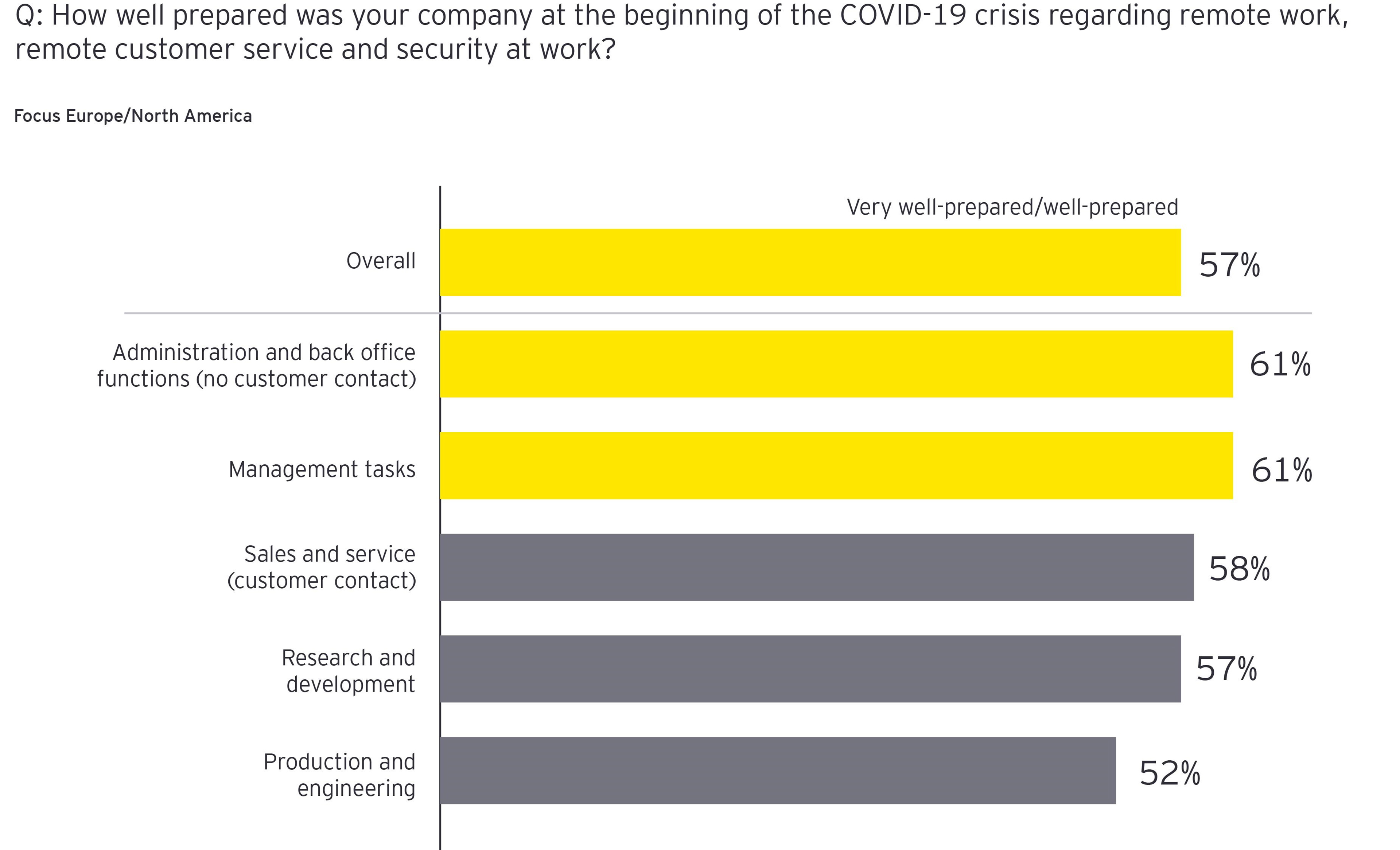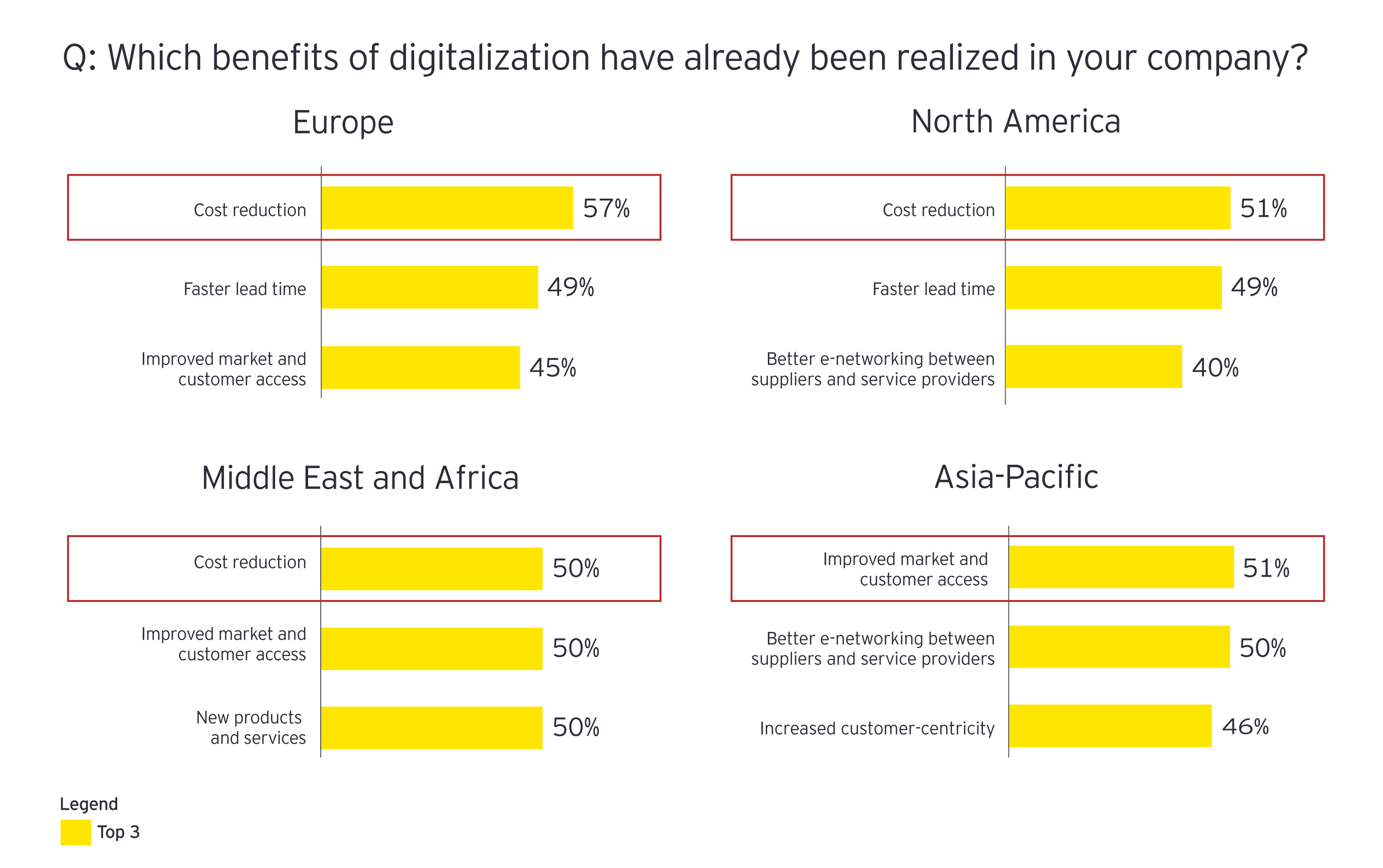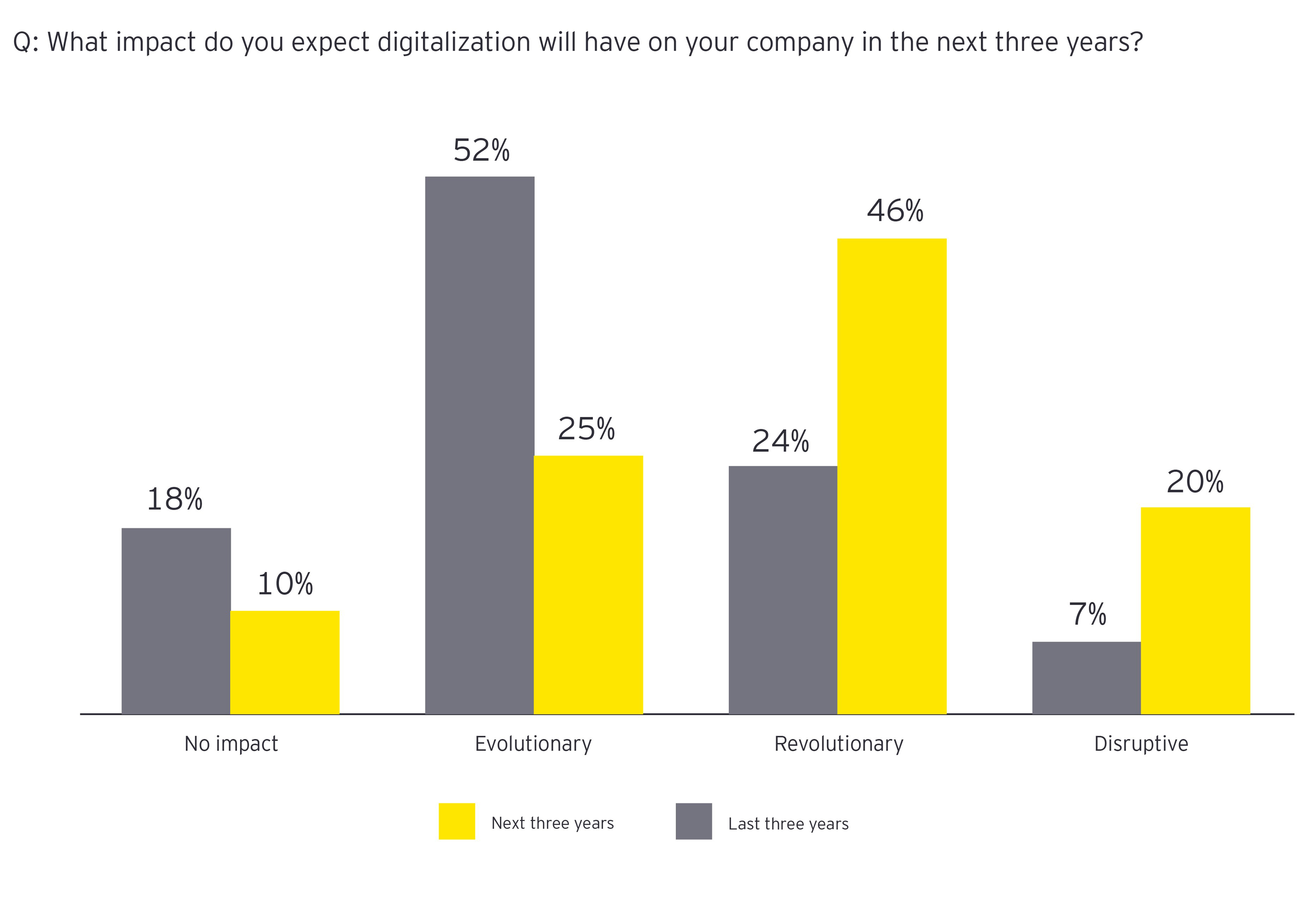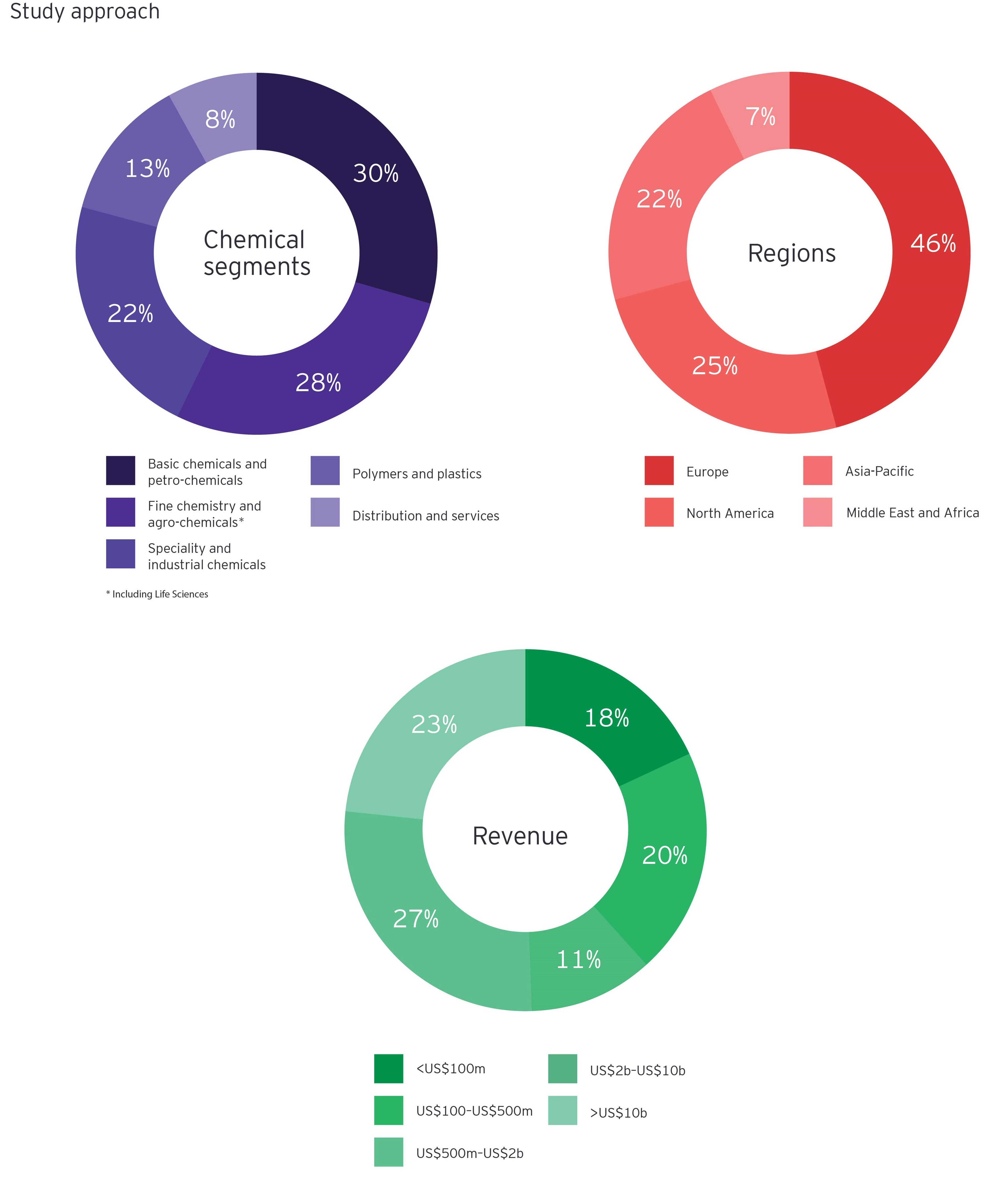Importance of digitalization grows
In fact, some of it is beginning now. In our latest DigiChem SurvEY 2020, published in CHEManager International 4/2020, EY, together with an independent market research institute, reported that many medium-sized and larger chemical companies are already using digital technology to make profound changes to their existing processes and structures.
In particular, executives told us that digital technologies are having a growing influence on their company’s strategic and operational positioning. A majority now believes that no function will be unaffected. These industry leaders expect that digitalization will affect their innovation and development (56%), customer interface (56%), processes and efficiency along the value chain (55%), logistics and distribution (62%), sales and order management (59%), and customer service (58%).
So far, 51% of executives say cost savings have been the biggest dividend of their digital experiments, but faster throughput times (47%) and more customer-centricity (43%) have run a strong second and third.
Another benefit many have noted was the relative ease with which their firm adapted to the COVID-19 lockdown. In a very short time, a majority of companies were able to switch to remote work and remote customer service, and to digitize processes that had previously been physical.
Looking back, 57% of those surveyed say their company turned out to be either well-prepared or very well-prepared for the pandemic. Now, as they look ahead, executives say they hope that before the next crisis they will be more transparent about changes (73%), able to formulate clearer rules about responding to emergencies (70%), and able to facilitate easier digital access to information and documents (69%).

In the 2020 survey, many medium-sized and larger chemical companies were already using digital technology to make profound changes to their existing processes and structures.
More optimism in Asia-Pacific
Not only do Asia-Pacific participants feel they are making more progress on their digital journey, they seem to be getting progressively more convinced of its value. In fact, Asia-Pacific executives rate the impact of digitalization on corporate strategy, portfolio, business models and value creation more highly than do their colleagues in Europe and North America. Also, Asia-Pacific participants rate and appreciate market and customer access and ecosystem buildouts much higher than do their competitors in Europe and North America.
European and North American executives may want to think about what these regional differences signify. As important as digitization is for driving greater efficiency, the Asia-Pacific responses suggest they should not overlook the potential for the technology to encourage growth as well.

Summary
The DigiChem SurvEY results suggest that digitization is accelerating in the chemical industry generally. Only 10% now believe it will have no impact; 90% see either evolutionary, revolutionary or disruptive change ahead.



